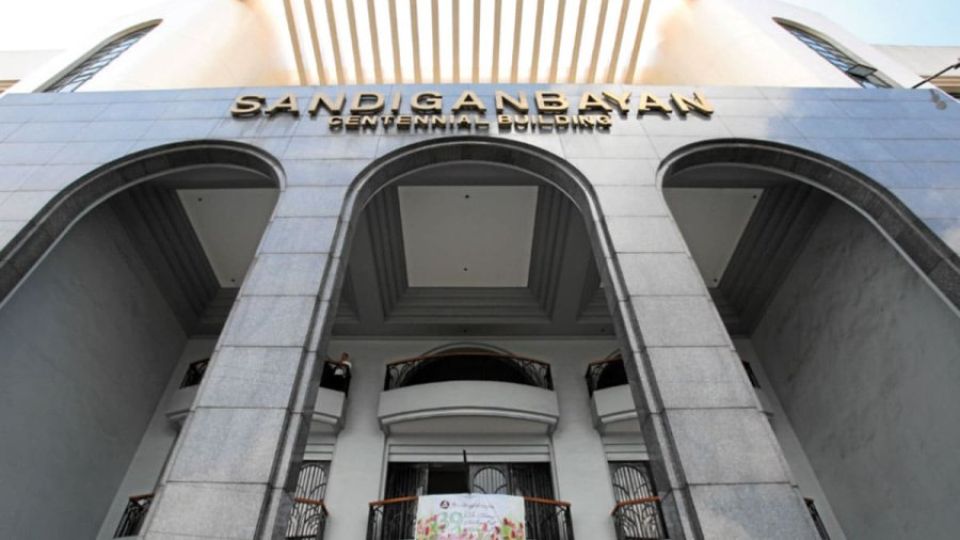February 21, 2025
MANILA – “Neglected and forgotten.”
Thus said the antigraft court as it dismissed another ill-gotten wealth case against the late President Ferdinand Marcos Sr., his wife, Imelda, and their government photographer Fernando Timbol that was left pending due to the inaction of government lawyers.
In its Feb. 18 resolution, the Sandiganbayan Second Division said the Presidential Commission on Good Government (PCGG), through the Office of the Solicitor General (OSG), failed to act on the developments in the case, particularly to hold the Marcos couple in default after Imelda, the surviving defendant in the case, did not file a response to a court order directing her to answer the various civil charges against her.
This, the court stressed, would have continued the prosecution of the Marcos couple, including the demand for damages.
“Regardless of the passage of time, [the] plaintiff’s duty to move for a default order is unchanged. Yet, [the] plaintiff failed to do so … and left the present complaint pending without resolution,” read the resolution written by Presiding Justice Geraldine Econg, who also serves as the division chair.
P5M worth of vehicles
It noted that the complaint, filed in July 1987 and docketed as Civil Case No. 0032 seeking the reconveyance, reversion, accounting, restitution, and damages for the “unlawful acquisition” of P5 million worth of vehicles in the name of Timbol, “was neglected, forgotten and left pending and unresolved in the court’s docket.”
“Clearly, considering that defendant (Imelda) did not file a responsive pleading in compliance with the court’s resolution … the proper course of action on the part of [the] plaintiff was to move for a declaration of default pursuant to the [civil procedure] rules,” the Sandiganbayan explained.
An accused who is rendered “in default” means that the court could move ahead with the judgment of the case, as stated in the 1997 Rules of Civil Procedure.
Sense of fairness
The antigraft court was referring to an Oct. 28, 1992, resolution that granted the motion to set aside the order of default filed by the former first lady.
Imelda Marcos then argued that her participation in the court proceedings was limited by her family’s “forced exile” and by the ban imposed by the Cory Aquino administration on their return to the Philippines.
While the pleading was resolved in favor of the Marcoses, the Sandiganbayan directed Imelda to submit her “responsive pleading to various complaints pending against her” within 15 days from the date she received the court order.
The government’s response at the time was to file a motion for reconsideration that questioned the court’s resolution nullifying the default order, which was later denied by the antigraft court.
The OSG then went to the Supreme Court to challenge this and seek a petition for certiorari, but the high court affirmed the Sandiganbayan’s ruling, finding “no errors of jurisdiction” on the part of the antigraft court. The high tribunal then also noted that the Sandiganbayan decided the matter based on the “most elementary sense of fairness.”
Nothing followed on the case after this, with its status “left unsettled,” the Sandiganbayan noted, until it moved for a case conference on Jan. 21, 2025.
In the recent hearing, representatives from the PCGG said the commission, which was tasked to go after the ill-gotten wealth during the dictatorship of Marcos Sr., and the OSG lawyers agreed that the government would have “no objection” should the court move to have the case closed.
Both the PCGG and OSG cited a writ of execution that allowed the recovery in 1989 of the vehicles covered in the case.
Unresolved issue
But to this, the Sandiganbayan said, “True, there is a consensus between PCGG and OSG to deem the case terminated given the partial satisfaction of the writ of execution. However, [the] plaintiff’s procedural duty to move for a default order or otherwise prosecute or cause the dismissal of the present complaint is not dispensed with by such consensus.”
“Even with the partial satisfaction of the writ … there remains an unresolved issue left for adjudication and a concomitant duty of the plaintiff as a claiming party to prosecute the same,” it added.
This “failure” by the prosecution prompted the antigraft court to junk the case against the Marcoses, it said.
In December last year, the same division issued separate resolutions dismissing eight other ill-gotten wealth cases that were filed against Marcos Sr., Imelda, and the late tycoon and Marcos crony Eduardo Cojuangco Jr.
The cases involved the purchase of First United Bank, the predecessor of United Coconut Planters Bank; San Miguel Corp. shares; the creation of companies out of coco levy funds collected during the Marcos years; the formation and operation of the Bugsuk project and the award of P998 million in damages to agricultural investors; the purchases and settlement of the accounts of oil mills; the unlawful disbursement and dissipation of coco levy funds; the acquisition of Pepsi-Cola; and the grant of behest loans and contracts.


